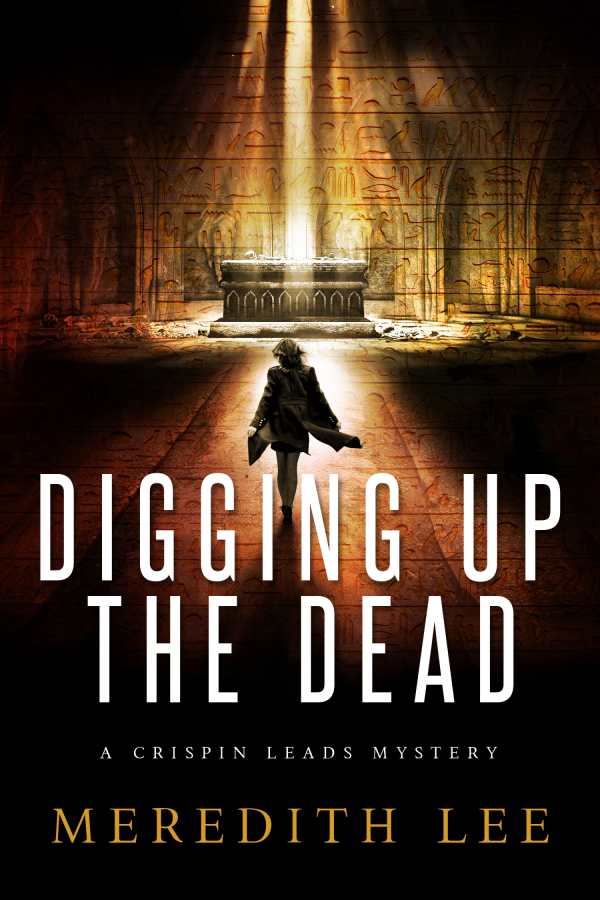Digging Up the Dead
Throughout this appealing pulp mystery, the heroine chases ghosts both ancient and contemporary in pursuit of truth.
A throwback to young woman sleuth novels of days past, Meredith Lee’s Digging Up the Dead is a cheerful mystery centered on ever-romantic Egyptian excavations.
In the 1920s, in the Valley of the Kings, a young boy died in front of King Tut’s tomb following an apparent accident. Decades later, Crispin Leads is at the site when another body appears.
Crispin is from a family of high achievers. Her father, who is held apart as “Dr. Leads” even in her thoughts, is an esteemed archaeologist; she and her twin brother are both PhD candidates. The three converge at an Egyptian excavation site just before the novel opens and revive some family tension. Then a body turns up. As Crispin heads off to London for more research, she runs into another body. More than one dangerous accident makes her think that someone’s after her too.
Foreshadowing is heavily employed and gives the mystery a campy flavor. Some of the story’s developments are implausible, including the liberties that Crispin takes with archival materials. The incorporation of a mythologized cult adds nice eeriness, and a black-market antiquities scheme secures interest.
As a lead, Crispin is a study in contradictions. An outwardly blessed character, she is made more human and more complex by the ways that she deviates from her privileged background. She has dreams that portend dark events. She is torn asunder by her mother’s death, though it happened long ago, and she has a history of self-harm. Her superstitions butt against her academic nature.
Throughout the novel, Crispin chases ghosts both ancient and contemporary in pursuit of the truth. Secondary characters are more types: an archives librarian in orthopedic stockings; a well-connected member of the English nobility; a sassy Southern roommate with honeyed speech. Crispin’s friends, brother, and love interests are prone to speaking like they are older than they are and behaving as if they are younger. They all contribute to the story, but they feel less real than the heroine.
An excess of attention is paid to everyday details, and tertiary memories, historical lessons, and long meals inhibit the story’s momentum. Crispin’s romantic interludes read as unnatural and unnecessary. The prose is most assured when it’s concerned with Egyptology; when its focus is more immediate, odd word choices and overdramatizations arise. Some phrases are evocative, as when Crispin notes in Egypt that “the land ached with poverty.”
In this novel, resolutions come more by luck than through keen detective work. The characters long openly after the sleuths of famous mystery novels: “What would Sherlock Holmes say?” Those affections are reflected in the plot’s progression and in whisperings of the occult. The ending proffers neat, reasonable, and expected resolutions.
If you dispense with incredulity, there’s fun to be had in Digging Up the Dead, an Egypt-centered mystery helmed by a wry modern-day heroine.
Reviewed by
Michelle Anne Schingler
Disclosure: This article is not an endorsement, but a review. The publisher of this book provided free copies of the book and paid a small fee to have their book reviewed by a professional reviewer. Foreword Reviews and Clarion Reviews make no guarantee that the publisher will receive a positive review. Foreword Magazine, Inc. is disclosing this in accordance with the Federal Trade Commission’s 16 CFR, Part 255.

